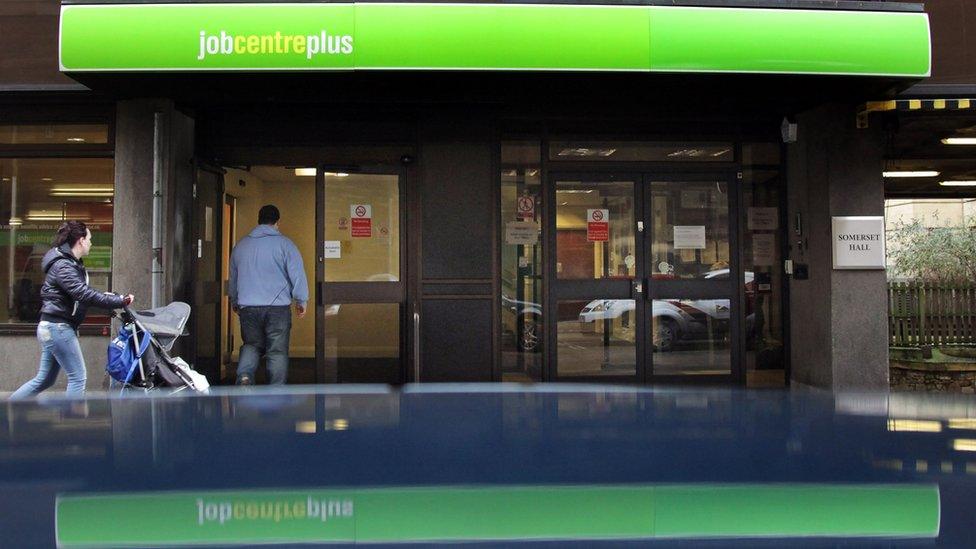Figures suggest Dundee-Glasgow benefit sanctions 'lottery'
- Published
Sonya Alalibo, from Dundee, has to show that she has applied for five jobs a week
Evidence of a postcode lottery in benefit sanctions has been uncovered by a new analysis of the latest figures.
The New Policy Institute (NPI) said the statistics suggested that people claiming Jobseekers Allowance in Dundee were about 50% more likely to be sanctioned than claimants in Glasgow.
People have their benefits stopped or cut for a variety of reasons.
The Department for Work and Pensions said staff have no sanctions targets and that sanction rates are falling.
People who are sanctioned can have their payments stopped for four weeks, or as much as three years, depending on how many times the rules are broken.
Reasons for sanctions include being late or not attending Jobcentre meetings and training, or not applying for enough jobs.
The DWP said the sanctions regime is a necessary part of the benefits system, but a committee of MPs has twice called for an inquiry into how they work.
According to analysis by the NPI, the monthly sanction referral rate in Dundee in 2014 was 509, or 12.4% - 4.7 percentage points higher than in Glasgow (1,327 or 7.7%).
In Scotland as a whole in 2014, the average monthly sanction rate for those aged under-25 was 8%, compared to 3.7% for those aged 25 and over.
The NPI director, Peter Kenway, said there did not appear to be any good reason for the disparity between Dundee and Glasgow in terms of the claimants themselves.
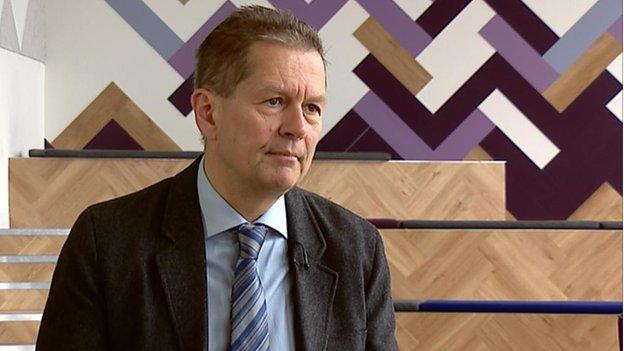
Peter Kenway people want a "fair and straight system"
He said: "You'd expect some random fluctuation but the difference between 12% of people every month and 7.5% every month can't in any way just be put down to random day-to-day fluctuation.
"It's a clear sign that although it's the same system on paper, things are being run very differently in Dundee from the way it's run in Glasgow. To have the benefits system run unevenly and unfairly is completely unacceptable.
"It's not that people want a soft system, they want a fair and straight system."
He added: "What we've got at the minute is a harsh system that's being applied very unevenly. And there's no evidence to suggest that Dundee's got it right."

CASE STUDY - Kevin Keen, jobseeker from Dundee
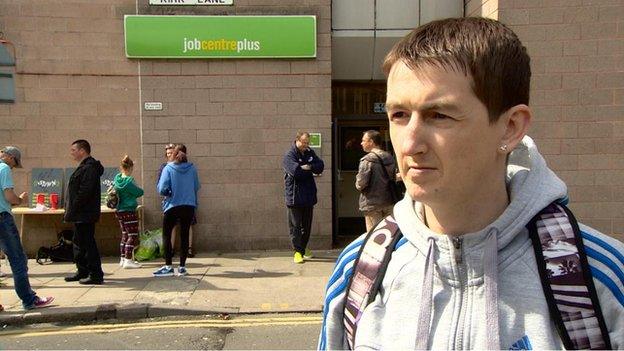
"I started on Jobseekers Allowance in mid-December last year. I got sanctioned on 29 January because I was 15 minutes late for my appointment.
I was homeless at the time, and on that day I was moving from a centre in Dundee up to the Salvation Army. To sanction me for six weeks, made me totally broke.
I have epilepsy and one of the rules of my tablets is to take them with meals, never on an empty stomach. When I was sanctioned, that all went haywire. Because I didn't have money for food, I was taking fits left, right and centre.
I was relying on handouts from my pals, family and foodbanks - it was a nightmare.
The conditions of my Jobseekers Allowance are that I have to go on a computer four to six times a week, use the Universal Jobsmatch website, look at job adverts in the newspaper and go into places to ask if they've got any vacancies.
Yesterday, I was on the computer in the library.
There's a thing you can get to cover the screen to prevent epileptics having seizures at computers or televisions. They don't have that at the library. When I was at the computer, I actually took a seizure.
It feels like if you make any mistake you're going to get sanctioned."

The statistics show that Dundee has a worse record than Glasgow of jobseekers finding work within a year.
In 2014, 37% of Jobseekers Allowance claimants in Dundee had been claiming for more than a year, compared to 29% in Glasgow.
Tony Cox, who has been campaigning against Dundee's high sanction rate outside the Wellgate Jobcentre, has formed the Scottish Unemployed Workers Network, which advises people where they can get emergency help.
He said: "This is an area of endemic unemployment. We also have a lot of people with learning difficulties and low-level mental health issues. In our experience it's the most vulnerable people who are most likely to be sanctioned.
"What the DWP have got to recognise and improve upon is their system for identifying vulnerable clients."
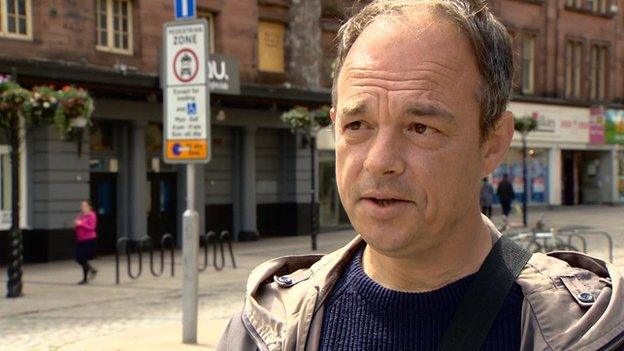
Tony Cox has been campaigning against the high sanction rate in Dundee
Unemployment expert, David Webster, said he did not think variations in the sanctioning rates between Jobcentres was down to differences in practices.
However, he believes that staff working in the sector have to meet sanctions targets. That is disputed by the DWP.
The Senior Research Fellow at Glasgow University said: "It's become part of their normal staff appraisal system. Their work is reviewed periodically by their manager.
"If they haven't been imposing enough sanctions they've been told that they've got to improve their performance otherwise they will be put on what they call a 'personal improvement plan' - a prelude to potential disciplinary action and dismissal."
He said the DWP's approach was failing jobseekers.
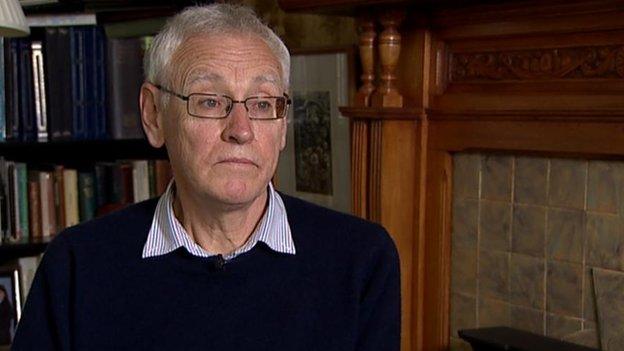
Prof David Webster said the DWP's approach is failing jobseekers
"The commonest reason for people being sanctioned is not doing enough job applications," he said.
"I think the government is wasting everybody's time with their emphasis on people doing massive numbers of job applications."
There have been warnings over the government's jobs website, Universal Jobsmatch, but many jobseekers are expected to use it as a condition for getting their benefit.
A DWP spokesman said: "Jobseekers have a range of resources to help them find a job, including the 750,000 jobs advertised through Universal Jobmatch and opportunities available through their local Jobcentre.
"We validate every employer that uses Universal Jobsmatch, but they are responsible for managing the vacancies they advertise in the same way they would through any other employment site."
The Scottish government spokesman called for the current "discredited" sanctions regime to be suspended pending a review.
He added: "It is clear from the evidence we have and from reports produced by a whole range of stakeholders that many vulnerable people are suffering by this punitive sanctions system, including lone parents, young people and disabled people and now the DWP appear to be admitting this.
"We are clear that individuals should be treated with dignity and respect, and will ensure that that these principles are embedded in Scottish social security policies when they are devolved to us."
- Published13 May 2015
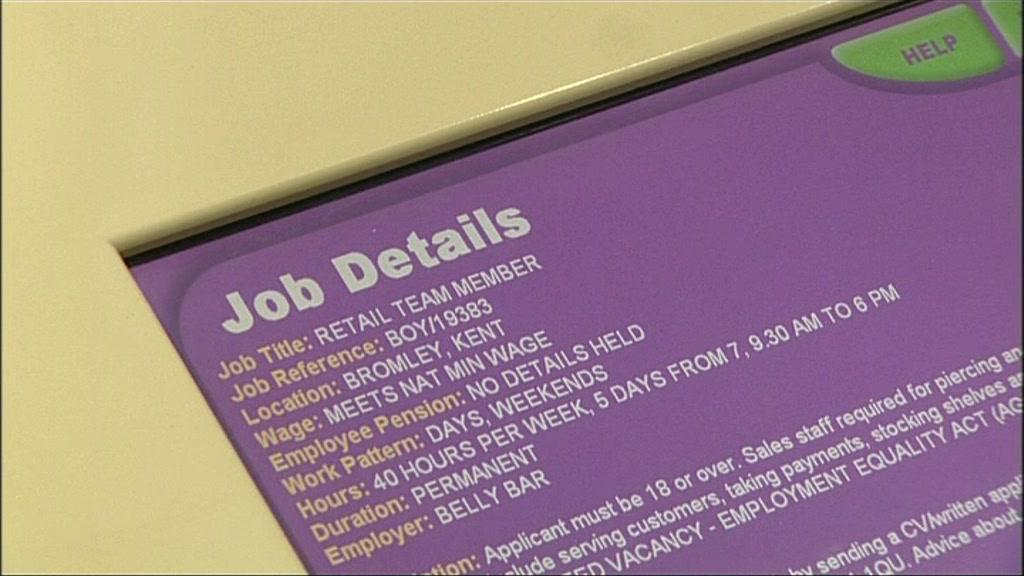
- Published10 March 2015

- Published1 July 2014
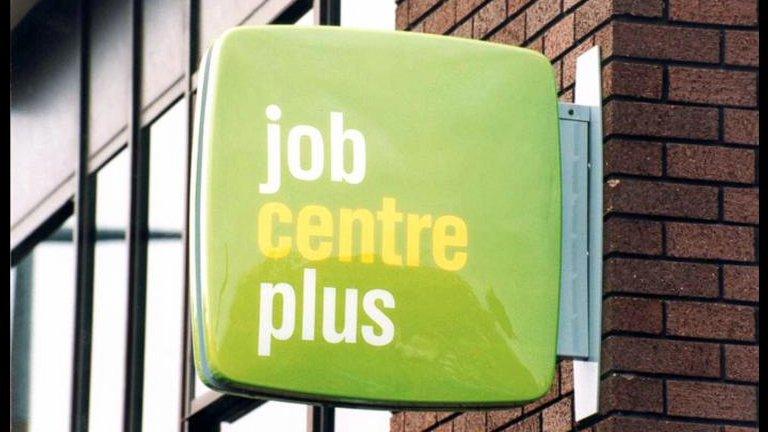
- Published6 March 2014
